The Rise of Productivity Coaching in the Modern World
In today’s fast-paced world, productivity has become one of the most sought-after skills across industries. As companies strive to maintain efficiency and individuals work to balance personal and professional goals, the demand for productivity coaches has surged. These professionals help clients develop strategies to maximize time, energy, and focus—turning goals into tangible outcomes. The growth of remote work and digital tools has only amplified the need for expert guidance in maintaining discipline and accountability. Productivity coaching goes beyond time management; it dives into the psychology of motivation, habit-building, and performance enhancement. Certified coaches help others design sustainable systems that align with both values and priorities. This growing field attracts business leaders, corporate professionals, and entrepreneurs who recognize that peak performance begins with effective structure and clarity.
What a Productivity Coach Certification Really Means
Earning a productivity coach certification signifies much more than a professional credential—it’s a demonstration of expertise, integrity, and commitment to helping others achieve consistent results. Unlike general coaching, certified productivity coaching involves mastering frameworks that address cognitive patterns, behavior shifts, and personal organization. Certification ensures that a coach has undergone structured training and evaluation, proving they possess both theoretical knowledge and practical coaching ability. For clients, this serves as a mark of trust and reliability. Certified productivity coaches are trained to assess barriers to performance and to create actionable strategies tailored to diverse personalities and work environments. This formal recognition differentiates them in a competitive coaching landscape, giving clients confidence that their coach meets professional standards. Whether you aim to start your own coaching business or enhance your corporate role, certification opens doors to long-term credibility and influence.
Essential Skills and Competencies of a Certified Productivity Coach
A certified productivity coach is more than just an accountability partner—they are a strategist, motivator, and mentor. To perform effectively, one must develop a blend of technical, psychological, and interpersonal skills. Coaches must deeply understand human motivation and behavior, recognizing the triggers that influence productivity levels. They learn to guide clients through goal-setting, task prioritization, and focus optimization using science-backed tools. Communication is another essential component, as coaches must listen actively, ask powerful questions, and offer constructive feedback that encourages progress. In addition, certified coaches cultivate expertise in:
- Time management systems and scheduling techniques
- Behavioral change frameworks and motivational psychology
- Technology tools for task tracking and goal monitoring
- Strategies for sustainable productivity and well-being
Continuous professional development is also vital. Productivity coaches must keep learning as new research and tools emerge, ensuring they remain relevant and effective. This dedication to growth strengthens client relationships and leads to measurable, lasting results.
Types of Productivity Coach Certification Programs
The coaching industry offers diverse certification options, each catering to different learning preferences and career goals. Some programs are intensive and immersive, requiring months of study and practical coaching hours, while others are flexible and self-paced. Online certification programs have gained popularity due to their accessibility and global reach, allowing learners to study from anywhere. In-person programs, however, provide immersive experiences and direct mentorship. When choosing a productivity coach certification, it’s crucial to evaluate the credibility and accreditation of the institution offering it. Accredited programs ensure that the curriculum meets industry standards and that graduates are recognized by professional coaching associations.
Typical certification levels include:
- Foundational Certifications: Best for beginners exploring productivity coaching basics
- Advanced Certifications: Focused on specialized techniques and behavioral transformation
- Master-Level Programs: Designed for seasoned coaches seeking to refine leadership and coaching mastery
Program duration and costs can vary widely, but the investment often pays off in expanded opportunities and higher earning potential.
Steps to Becoming a Certified Productivity Coach
Becoming a certified productivity coach requires planning, dedication, and a genuine passion for helping others achieve success. The first step is self-assessment—determine if coaching aligns with your values, skills, and long-term goals. Next, research certification programs that are accredited and align with your learning preferences. Once enrolled, you’ll complete coursework that typically covers coaching principles, productivity science, and client engagement techniques. Most programs include supervised practice sessions to develop real-world coaching experience.
After completing training hours and assessments, coaches often create a portfolio showcasing client case work, feedback, and results. This serves as proof of practical competence and credibility when launching or expanding a coaching practice. To maintain certification, ongoing education is usually required, ensuring coaches stay current with new methodologies and technologies. By following this structured path, you position yourself as a professional who doesn’t just understand productivity but lives and teaches it effectively.
How Certification Enhances Career Opportunities
A productivity coach certification can significantly transform your professional trajectory. Certified coaches enjoy a strong competitive advantage in the growing coaching market, often commanding higher fees due to proven credibility. They gain access to a wide client base that includes corporations, small businesses, and individuals seeking personal growth. Many certified coaches also expand into consulting, training, and leadership development roles.
Career benefits include:
- Increased professional recognition and client trust
- Opportunities to collaborate with corporate teams and organizations
- Flexibility to build an independent coaching business
- Enhanced skills that complement existing professions such as HR, education, or management
Certification not only elevates your market value but also deepens your impact as you help others unlock their full potential. The journey equips you with the authority and expertise needed to navigate diverse challenges and make measurable improvements in people’s lives and businesses.
Common Challenges and How to Overcome Them
While the path to becoming a productivity coach is rewarding, it also comes with challenges. Balancing your own productivity while coaching others can be complex, as you must model consistency and efficiency daily. Standing out in a competitive coaching market requires strategic branding, networking, and consistent value delivery. Some coaches struggle with setting boundaries, leading to burnout or client dependency. The key lies in developing systems for self-care, business structure, and ongoing professional support.
Another common challenge is managing client expectations. Not all clients progress at the same pace, and learning how to measure and communicate results effectively is essential. Coaches also need to adapt to technological changes, mastering tools that enhance coaching sessions and tracking client performance. Overcoming these challenges strengthens both professional competence and personal resilience, ensuring long-term success in the field.
The Future of Productivity Coaching
The future of productivity coaching looks exceptionally promising. As organizations continue embracing remote and hybrid work, the need for structured productivity systems will keep increasing. Technology is also reshaping the way coaches operate, with AI-driven analytics, digital planning tools, and virtual sessions offering new ways to serve clients globally. Certified productivity coaches are in a strong position to integrate these tools into their practice, offering data-driven insights that improve results.
Moreover, there’s a growing emphasis on sustainable productivity—balancing efficiency with mental health and well-being. Clients are no longer seeking just output optimization; they want meaningful, balanced success. Certified coaches who understand these evolving needs will remain in high demand. The integration of neuroscience, behavioral science, and digital transformation ensures that productivity coaching will continue to evolve as both a career and a movement that redefines how people work and live.
Frequently Asked Questions (FAQ)
1. What qualifications do I need to start a productivity coach certification program?
Most programs only require a high school diploma or bachelor’s degree, though some prefer prior coaching or leadership experience.
2. How long does it take to become certified as a productivity coach?
Depending on the program, certification can take anywhere from three months to a year.
3. Are online certification programs credible?
Yes, as long as the institution is accredited and recognized by a reputable coaching association.
4. What’s the average salary or income potential for certified productivity coaches?
Earnings vary, but many certified coaches charge between $100 and $300 per hour, or more for corporate clients.
5. Can I specialize in corporate productivity coaching or personal productivity?
Absolutely. Many programs offer niche paths focusing on business, executive, or personal productivity.
6. Do I need prior coaching experience before getting certified?
No, but having experience in leadership, management, or consulting can be beneficial.
7. How do I maintain or renew my certification after completion?
Most certifications require periodic renewal through continuing education or professional development activities.
Takeaway
Becoming a certified productivity coach is more than earning a credential—it’s about mastering the art and science of helping people work smarter, not harder. Certification enhances your credibility, opens career opportunities, and provides the tools to make a lasting impact on others’ lives. By investing in productivity coach certification, you’re not only developing a rewarding career but also contributing to a movement that helps individuals and organizations reach their fullest potential through clarity, efficiency, and purpose.











